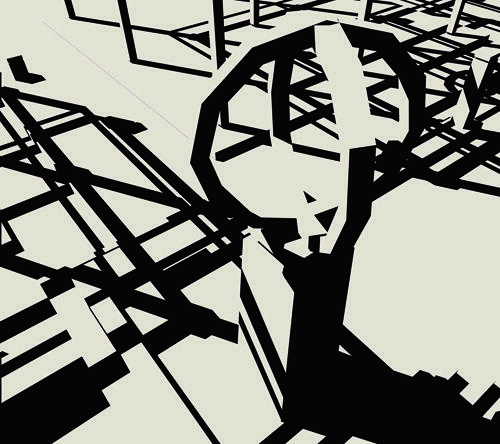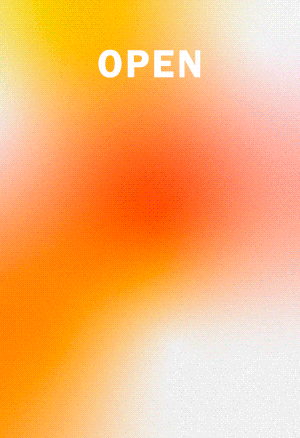Julio Pacheco
Rivas La Cuadra, Caracas
Julio Pacheco Rivas (Caracas, 1953) belongs with the kind of artists whose consistency over time must be recognized. One must also acknowledge the evolution of his work and his constant search. We might define him as a modern version of Piranesi, not because of any association with the terrifying elements employed by the 18th century engraver, but because of his passion for architecture and for his clustered structures. Pacheco unveils spaces and details the constructive elements in an attempt to decode the obsession with time-space that haunts us all.

Along that line of work, Pacheco has constructed his impossible places in an impeccable way. The visitor necessarily had to stop to try to decipher those infinite geometries. In his previous works, the edges were marked. The light came from the color. Pacheco presented a close-up of his personal environment. Pieces that were against the light.
Currently the artist renders the space in high contrast. The light comes from the background, and the spectator no longer sees color, but only distinguishes black and white. He/she is blinded. The proposal is simplified. But there is still more. That light creates a dispersion of space that eliminates details. The environment becomes purer. The spectator must then resort to memory in order to clarify the proposal. And the artist plays with the issue of light-memory to trap the visitor.
At this stage the artist moves increasingly away from figuration to enter into an abstract-geometric world with a sense of spatiality, which is multiplied through the handling of the implausible perspectives which Pacheco Rivas has skillfully developed since the beginning of his career, more than forty years ago. The result is a much more minimalist and reductionist proposal of a sustained evolution. With an extraordinary economy of means, Pacheco creates more realistic pieces − a contradiction in terms − because we feel that the spaces have been visited as the artist plays with the idea that they have been inhabited spaces and not fictions.
-
 Salsa Madre, 2011. Acrylic on canvas, 43.3 x 59 in./ Acrílico sobre tela. 110 x 150 cm. Photo/Foto: Gabriel Díaz
Salsa Madre, 2011. Acrylic on canvas, 43.3 x 59 in./ Acrílico sobre tela. 110 x 150 cm. Photo/Foto: Gabriel Díaz




